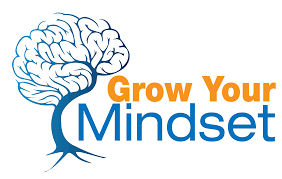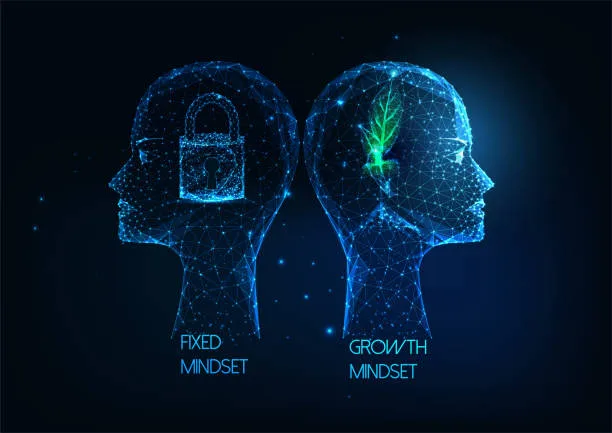
In a rapidly evolving and competitive job market, cultivating a growth mindset has become more crucial than ever. By adopting a growth mindset, individuals open themselves up to endless possibilities and opportunities for personal and professional development. This mindset believes that talents and abilities can be developed through dedication, hard work, and a willingness to learn from setbacks. It is the key to unlocking one’s true potential and achieving long-term success in their career. In this dynamic world, where technology and industries are constantly evolving, those who embrace a growth mindset are better equipped to adapt to change, innovate, and thrive in their chosen field. So, whether you’re a recent graduate looking to kickstart your career or an experienced professional seeking to take your career to new heights, cultivating a growth mindset is the foundational step towards unlocking a world of career opportunities. Join us as we explore the power of a growth mindset and how it can transform your professional journey.
However, you can find all the information you’ve been searching for on this blog or in our future articles, which are accessible by clicking here
Understanding the Concept of a Growth Mindset

A growth mindset is the belief that intelligence, talents, and abilities are not fixed traits but can be developed and improved through effort, practice, and learning. Individuals with a growth mindset understand that their abilities can be cultivated and expanded over time. They view failures and setbacks as opportunities for growth and learning, rather than as indicators of their limitations.
Embracing a growth mindset requires a shift in perspective. It means moving away from the belief that our abilities are fixed and predetermined, and instead, adopting the belief that we have the power to shape our own success through continuous learning and effort.
Developing a growth mindset begins with self-awareness. It involves recognizing our own fixed mindset beliefs and challenging them. By understanding that our abilities are not fixed but can be developed, we open ourselves up to new opportunities and possibilities for growth.
The Importance of a Growth Mindset in Career Development

In today’s fast-paced and ever-changing work environment, having a growth mindset is essential for career development. Employers value individuals who are adaptable, open to learning, and willing to embrace new challenges. A growth mindset enables individuals to approach their careers with a sense of curiosity, resilience, and a willingness to step outside of their comfort zones.
When faced with challenges or setbacks, individuals with a growth mindset are more likely to persevere and find creative solutions. They view obstacles as opportunities for growth and learning, rather than as roadblocks. This mindset allows them to bounce back from failures and setbacks stronger and more determined than before.
Increased Resilience and Adaptability
- One of the key benefits of cultivating a growth mindset is increased resilience and adaptability. In a rapidly changing job market, being able to adapt to new technologies, trends, and ways of working is essential for long-term career success. Individuals with a growth mindset are more likely to embrace change, seek out new opportunities, and continuously develop their skills to stay ahead of the curve.
Overcoming Fixed Mindset Beliefs
- To cultivate a growth mindset, it is important to identify and overcome fixed mindset beliefs that may be holding us back. Fixed mindset beliefs are deeply ingrained thoughts and attitudes that limit our potential and hinder our growth. Common fixed mindset beliefs include the belief that intelligence is fixed, that talent is innate, and that effort is fruitless.
By challenging these fixed mindset beliefs and replacing them with growth mindset beliefs, we can unlock our true potential. Embracing the belief that effort leads to growth, that challenges are opportunities for learning, and that failures are stepping stones to success, we can overcome self-imposed limitations and achieve greater heights in our careers.
Strategies for Developing and Cultivating a Growth Mindset

Developing a growth mindset is an ongoing process that requires conscious effort and practice. Here are some strategies that can help in developing and cultivating a growth mindset:
1. Embrace challenges: Seek out new challenges that push you outside of your comfort zone. Embracing challenges allows you to develop new skills and expand your abilities.
2. Adopt a learning mindset: Approach every situation as an opportunity to learn and grow. Be curious and open to new ideas and perspectives.
3. Practice self-reflection: Regularly reflect on your strengths, weaknesses, and areas for improvement. Use feedback as a tool for growth and development.
4. Cultivate a positive mindset: Focus on the positive aspects of your experiences and setbacks. See failures as learning opportunities and celebrate your successes, no matter how small.
5. Set goals and create a plan: Set clear, achievable goals for yourself and create a plan to achieve them. Break down your goals into smaller, actionable steps and track your progress.
6. Surround yourself with positive influences: Surround yourself with people who support and encourage your growth. Seek out mentors and role models who embody a growth mindset.
7. Practice self-compassion: Be kind and compassionate towards yourself. Acknowledge that setbacks and failures are a natural part of the learning process and treat yourself with patience and understanding.
The Role of Continuous Learning in Maintaining a Growth Mindset
https://www.youtube.com/watch?v=qjBdcyueom8&pp=ygVBRXhhbXBsZXMgb2YgU3VjY2Vzc2Z1bCBJbmRpdmlkdWFscyBXaG8gRW1ib2R5IGEgR3Jvd3RoIE1pbmRzZXTigIs%3D
Continuous learning is an integral part of maintaining a growth mindset. It involves actively seeking out new knowledge, skills, and experiences to expand your abilities and stay relevant in your field. By embracing a mindset of lifelong learning, you can ensure that you are constantly growing and adapting to the changing demands of the job market.
Continuous learning can take many forms, including formal education, online courses, workshops, conferences, reading books and articles, and seeking out new challenges and experiences. It requires a commitment to personal and professional growth and a willingness to invest time and effort into expanding your knowledge and skills.
By making continuous learning a priority, you not only enhance your career prospects but also cultivate a growth mindset that enables you to adapt, innovate, and thrive in a rapidly changing world.
Cultivating a Growth Mindset in the Workplace
A growth mindset is not limited to individual development; it can also be fostered within the workplace. Organizations that promote a culture of learning and growth are more likely to attract and retain top talent and foster innovation and creativity.
To cultivate a growth mindset in the workplace, organizations can:
1. Encourage continuous learning: Provide opportunities for employees to engage in ongoing learning and development. Offer training programs, workshops, and resources that support personal and professional growth.
2. Foster a supportive environment: Create an environment where employees feel safe to take risks, share ideas, and learn from failures. Encourage collaboration and provide constructive feedback and recognition for growth and improvement.
3. Lead by example: Leaders play a crucial role in cultivating a growth mindset within the organization. By demonstrating a growth mindset themselves and encouraging their teams to embrace growth and learning, leaders can create a culture of continuous improvement.
4. Promote a growth-oriented performance management system: Implement a performance management system that focuses on growth and development rather than solely on outcomes. Set goals that encourage learning and provide regular feedback and opportunities for growth.
By creating a workplace culture that values and supports a growth mindset, organizations can unlock the full potential of their employees and drive innovation, productivity, and success.
Examples of Successful Individuals Who Embody a Growth Mindset
https://www.youtube.com/watch?v=Q_EyPX3CD-g&pp=ygVBRXhhbXBsZXMgb2YgU3VjY2Vzc2Z1bCBJbmRpdmlkdWFscyBXaG8gRW1ib2R5IGEgR3Jvd3RoIE1pbmRzZXTigIs%3D
Many successful individuals across various fields embody a growth mindset and attribute their achievements to their willingness to learn, grow, and adapt. Here are a few examples:
1. Elon Musk: The founder of SpaceX and Tesla, Elon Musk is known for his relentless pursuit of innovation and his ability to overcome setbacks. He embraces a growth mindset and constantly seeks out new challenges and learning opportunities.
2. Oprah Winfrey: From a challenging childhood to becoming one of the most influential media personalities in the world, Oprah Winfrey attributes her success to her growth mindset. She believes in the power of continuous learning and personal development.
3. Michael Jordan: Regarded as one of the greatest basketball players of all time, Michael Jordan’s success can be attributed to his growth mindset. He was known for his relentless work ethic, his ability to learn from failures, and his constant drive to improve.
These individuals serve as inspirations and reminders that a growth mindset is the key to unlocking one’s true potential and achieving extraordinary success.
Resources and Tools for Further Developing a Growth Mindset
There are numerous resources and tools available to further develop and cultivate a growth mindset. Here are a few recommendations:
1. Books:
– “Mindset: The New Psychology of Success” by Carol S. Dweck
– “Grit: The Power of Passion and Perseverance” by Angela Duckworth
– “Atomic Habits: An Easy & Proven Way to Build Good Habits & Break Bad Ones” by James Clear
2. Online Courses:
– Coursera: Offers a wide range of courses on personal and professional development, including mindset and resilience.
– LinkedIn Learning: Provides access to thousands of courses on various topics, including growth mindset and leadership.
3. TED Talks:
– “The Power of Believing That You Can Improve” by Carol S. Dweck
– “The Surprising Habits of Original Thinkers” by Adam Grant
4. Podcasts:
– “The Mindset Mentor” by Rob Dial
– “The Tony Robbins Podcast” by Tony Robbins
These resources can provide valuable insights, strategies, and inspiration for developing and maintaining a growth mindset.
Conclusion: Embracing a Growth Mindset for Personal and Professional Growth
In a world where change is constant and opportunities are abundant, cultivating a growth mindset is the key to unlocking career opportunities and achieving long-term success. By embracing a growth mindset, individuals open themselves up to endless possibilities for personal and professional development. They become more adaptable, resilient, and open to new challenges and experiences.
Developing a growth mindset requires a shift in perspective and a commitment to continuous learning and self-improvement. It involves challenging fixed mindset beliefs, embracing failures as learning opportunities, and seeking out new challenges that push us outside of our comfort zones.
By adopting a growth mindset, individuals can transform their professional journey and unlock their true potential. They become lifelong learners, innovators, and leaders who are equipped to thrive in a rapidly changing world. So, whether you’re just starting your career or looking to take it to new heights, cultivating a growth mindset is the foundational step towards unlocking a world of career opportunities. Start today and embrace the power of a growth mindset. Your future self will thank you.
Read Also:
Visit mytopscholarships for more leadership/career posts







[…] Cultivating a Growth Mindset: The Key to Unlocking Career Opportunities […]